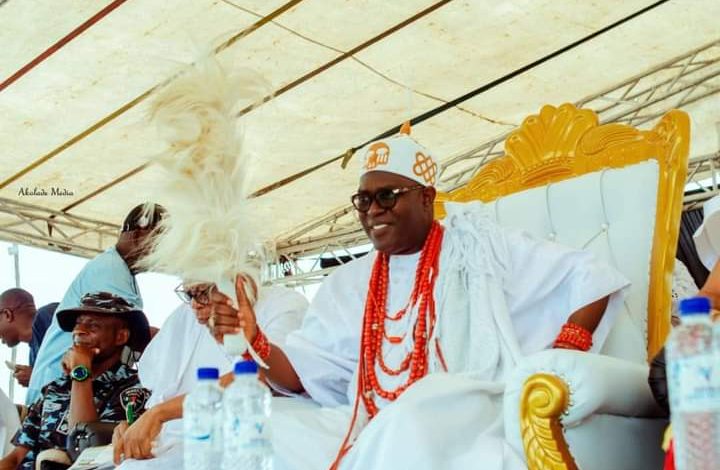In the vibrant cultural landscape of Ondo State, the Isinkan Kingdom, nestled within Akure South Local Government Area, stands as a proud testament to Yoruba heritage, traditional governance, and time-honoured customs. At the heart of this ancient kingdom lies a unique ritual – the observance of “Ajo” and “Ijo”, a monthly rhythm that binds the monarchy and its chiefs in a structured, sacred, and deeply symbolic governance system.
Long before colonial cartographers drew boundaries and governments redefined kingdoms, Isinkan was already a flourishing city-state with its own monarch, chieftaincy structure, religious institutions, and trade networks. The Iralepo, as the king of Isinkan is more than a political leader, he is the spiritual father of the kingdom, custodian of its traditions, and symbol of its continuity.
Though modern administrative changes have attempted to subsume Isinkan under broader structures, its people have fiercely preserved their distinct identity, rituals, and institutions, keeping the flame of their independence alive. This cultural resilience is perhaps best reflected in the monthly Ajo and Ijo gatherings, which form the pillars of grassroots governance in the kingdom.
Every last day of the month in Isinkan is sacred. On this day, no chief or traditional leader is permitted to visit or see the Iralepo. It is a day solely reserved for “Ajo”, an exclusive meeting of the traditional council, led by the High Chief Olisa, the second-in-command to the monarch. During the Ajo, matters of community development, social welfare, youth engagement, territorial administration, and economic priorities are deliberated upon. The Ajo provides an atmosphere of frank conversation, unity, and shared leadership.
The hosting of Ajo rotates monthly among the chiefs. Each host is required to organize the meeting within their domain, a custom that strengthens bonds across the various quarters of Isinkan and reinforces local identity and ownership.
A good example is the July 2025 edition, hosted by the Olu Aladodo of Isinkan, Olu Ayodeji Fatoki, at the Aladodo Isinkan community. The event was not just deliberative but festive, filled with traditional music, and communal joy that brought colour and celebration to the entire neighbourhood.
Even after the Ajo concludes, tradition forbids any chief from visiting the Iralepo’s palace that same day, regardless of urgency. This rule is only lifted in December, which means the Iralepo remains in sacred solitude from his chiefs eleven times a year, a powerful symbol of institutional separation of roles.
On the first day of every month, a new energy takes hold as the “Ijo” meeting unfolds at the Iralepo’s palace, Ita-Owa, in Isinkan. If Ajo is a parliament of chiefs, then Ijo is the Executive Council, where the resolutions and decisions of the Ajo are formally presented to the monarch for ratification and further discussion.
It is during the Ijo that the Iralepo, seated in council, engages with his chiefs on matters of strategic importance, including security, dispute resolution, infrastructure, and communal values. In essence, the Ijo completes what the Ajo begins, ensuring that grassroots perspectives are not only heard but also formally integrated into the kingdom’s royal framework.
The Ajo and Ijo tradition is more than ceremonial, it is a functional governance system deeply rooted in ancestral wisdom. It reflects the enduring brilliance of Yoruba political philosophy, which understands that deliberation without hierarchy and consensus under the crown ensures balanced leadership.
In an age where indigenous institutions are either forgotten or undervalued, Isinkan Kingdom remains a shining example of how tradition can remain both sacred and relevant. The rotational Ajo fosters inclusivity and unity, while the Ijo ensures that traditional authority remains responsive, dynamic, and grounded in community needs.
Through these customs, Isinkan does not merely preserve its past, it actively lives it, using ancient frameworks to meet modern developmental challenges. It is a model of how cultural continuity and effective governance can go hand in hand, offering valuable lessons not only to other Yoruba kingdoms but to the world at large.


